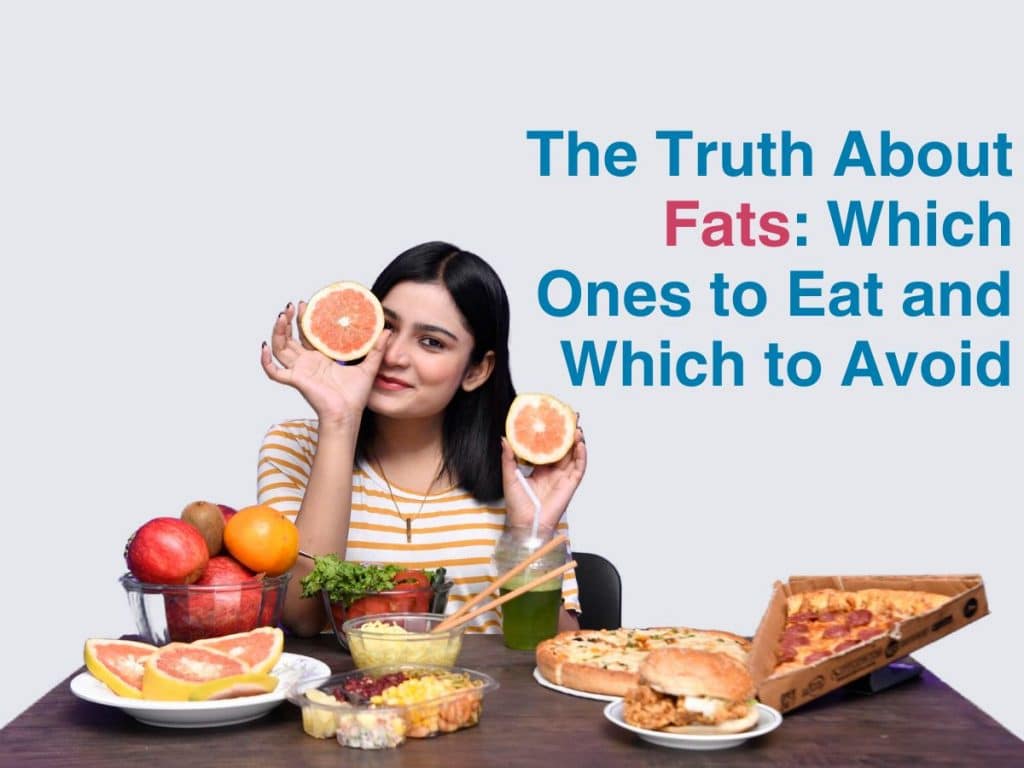
The Truth About Fats: Which Ones to Eat and Which to Avoid

Do you think: well, that’s dumb. All fats are bad and must be avoided like the plague!
Well, then, you’re in for a treat my friend! Because, the truth is, that not all fats are created equal.
Some fats are essential for good health, while others are not. Understanding the difference between healthy and unhealthy fats is crucial for maintaining a balanced diet and promoting overall well-being.
What are healthy fats to include in your diet?
Healthy fats, also known as “good” fats, are an essential part of a nutritious diet. They provide energy, support cell growth, protect organs, and aid in the absorption of fat-soluble vitamins like A, D, E, and K. Some excellent sources of healthy fats include:
Monounsaturated fats: Found in avocados, olive oil, nuts, and seeds.
Polyunsaturated fats: Present in fatty fish like salmon and mackerel, as well as in walnuts and flaxseeds.
Which fats are bad for you and should be avoided?
Unhealthy fats, often referred to as “bad” fats, can increase the risk of heart disease, stroke, and other health problems when consumed in excess. These include:
Trans fats: Found in partially hydrogenated oils and many processed foods like baked goods, fried foods, and margarine.
Saturated fats: Primarily found in animal products like butter, cheese, and fatty cuts of meat.
Difference between saturated and unsaturated fats
Saturated fats are typically solid at room temperature and are primarily found in animal sources, while unsaturated fats are liquid at room temperature and are primarily found in plant sources.
Unsaturated fats are generally considered healthier than saturated fats because they can help lower bad (LDL) cholesterol levels and reduce the risk of heart disease.
Foods high in unhealthy fats to avoid
To maintain a healthy diet, it’s essential to limit your intake of foods high in unhealthy fats, such as:
- Fried foods (French fries, fried chicken, donuts)
- Processed snacks (chips, crackers, cookies)
- Baked goods (pastries, pies, cakes)
- Fatty cuts of meat (bacon, sausage, ribs)
- Full-fat dairy products (butter, cheese, whole milk)
How to choose healthy fats for cooking
When cooking, opt for healthy fats like olive oil, avocado oil, ghee or coconut oil.
Try to avoid cooking with butter, palm oil and margarine.
These plant-based oils are rich in monounsaturated and polyunsaturated fats, which are better for your heart health.
Impact of different types of fats on cholesterol levels
While saturated and trans fats can raise harmful LDL (low-density lipoprotein) cholesterol levels, increasing the risk of heart disease, monounsaturated and polyunsaturated fats can help lower LDL cholesterol and raise beneficial HDL (high-density lipoprotein) cholesterol levels.
Healthy fats to eat during pregnancy
During pregnancy, it’s essential to include healthy fats in your diet to support the growth and development of the baby.
Good sources of healthy fats for expectant mothers include fatty fish, avocados, nuts, seeds, and plant-based oils.
Healthy cooking oils that are good for you
Some of the healthiest cooking oils to include in your diet are:
- Olive oil
- Avocado oil
- Coconut oil
- Flaxseed oil
- Walnut oil
Conclusion
In a healthy diet, it is important to limit the intake of unhealthy fats like saturated and trans fats. These types of fats, found in sources such as processed foods, fried items, and fatty animal products, can increase the risk of heart disease, stroke, and other health issues when consumed in excess.
Instead, a balanced diet should emphasize healthy unsaturated fats from nuts, seeds, fatty fish, and plant-based oils like olive and avocado oils.
While some healthy fats are beneficial and necessary, unhealthy saturated and trans fats should be minimized as much as possible for optimal health and reduced disease risk. By making smart choices to limit unhealthy fat sources and favor healthy unsaturated fat options, individuals can improve their overall dietary quality.
Frequently Asked Questions

Dr. Manisha Bandari
MBBS, MS (Gen. Surgery), DrNB (Surg. Gastro)
Jr. Consultant Surgical Gastroenterologist






